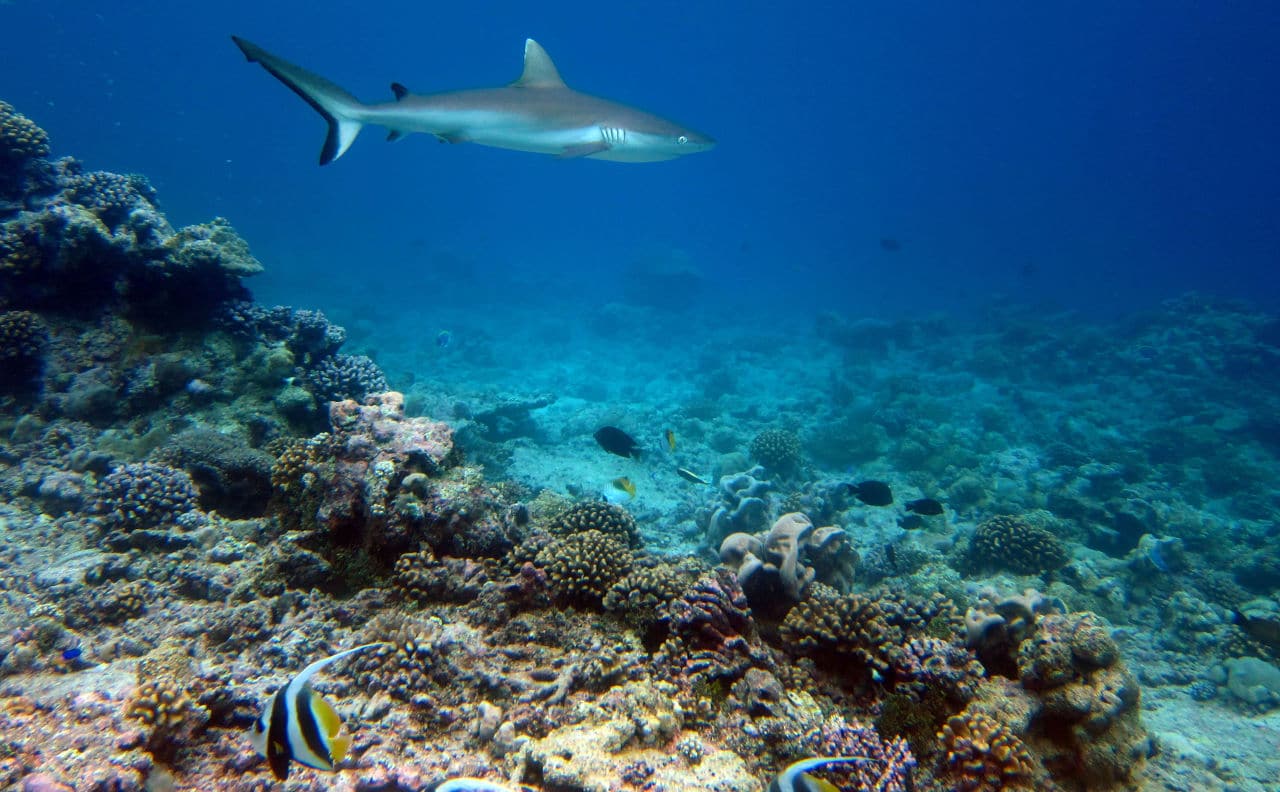The effectiveness of marine reserves compromised by human proximity
The ecological benefits of marine reserves located close to human settlements are limited. This has been demonstrated by researchers from the University of Montpellier, IRD, and the University of New Caledonia, in association with CNRS, who studied 1,800 coral reefs, including 106 located in 20 marine reserves. Their findings have been published in PNAS.

A gray reef shark swims over a reef in a large protected area far from humans. Photo credit: Nick Graham
Marine reserves: a tool to combat overfishing
Coral reefs are among the marine ecosystems most affected by human activity, resulting in a loss of biodiversity and biomass (total mass of organisms). To combat direct human pressures, particularly overfishing, more than 2,000 marine reserves covering over 6% of the world's reefs have been established. Some are established on reefs very close to humans or coastal settlements, others on reefs isolated from any human presence. This second conservation strategy is often criticized: why preserve isolated ecological systems rather than protecting and restoring systems that have been severely degraded by human contact?
It is in this context that this scientific study has been conducted by an international consortium since 2016. Its objective: to estimate fish biomass and the presence of top predators—such as sharks or large fish-eaters—in marine reserves in order to assess their effectiveness. These species play an essential role in the proper functioning of coral reefs: as an indispensable link in the food chain, they accelerate nutrient recycling and eliminate diseased individuals.
Partial protection of ecosystems close to humans
The global study was conducted in 1,800 coral reefs, including 106 located in marine reserves. It shows that establishing reserves close to human settlements mitigates human pressures, but does not eliminate them completely, particularly those related to fishing.
" Overall, top predators are absent from more than 70% of coral reefs. They are present in less than 1% of reefs close to human settlements. In contrast, their presence rate on isolated reefs is 59%," explains David Mouillot, one of the researchers who coordinated the study. Restoring populations of top predators such as sharks via small reserves located near anthropized coasts therefore seems illusory. The best way to preserve them remains the implementation of protective measures on isolated sites.
For fish biomass, the situation is slightly different. Protection seems optimal in reserves where human pressure is at an intermediate level.
"Different conservation strategies can benefit coral reefs," concludes David Mouillot. " Our study suggests maintaining a wide variety of reserves with very diverse objectives and not neglecting the protection of sites far from human activity."
Laboratories involved in the study
- ENTROPIE: Tropical marine ecology of the Pacific and Indian Oceans (IRD, University of Réunion, CNRS)
- LIVE: Island Laboratory for Life and the Environment (University of New Caledonia)
- MARBEC: Center for Marine Biodiversity, Exploitation, and Conservation (University of Montpellier, IRD, Ifremer, CNRS)